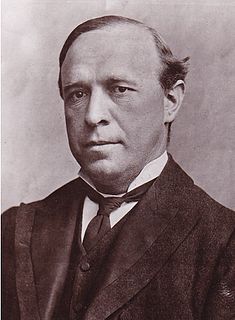Related Research Articles

Saunders Lewis was a Welsh political activist, poet, dramatist, historian and literary critic. He was a prominent Welsh nationalist and one of the founders of Plaid Genedlaethol Cymru, later known as Plaid Cymru. Lewis is usually acknowledged as one of the most prominent figures of 20th century Welsh-language literature. In 1970, Lewis was nominated for a Nobel Prize in Literature. Lewis was voted the tenth greatest Welsh hero in the '100 Welsh Heroes' poll, released on St. David's Day 2004.

The National Library of Wales, Aberystwyth, is the national legal deposit library of Wales and is one of the Welsh Government sponsored bodies. It is the biggest library in Wales, holding over 6.5 million books and periodicals, and the largest collections of archives, portraits, maps and photographic images in Wales. The Library is also home to the national collection of Welsh manuscripts, the National Screen and Sound Archive of Wales, and the most comprehensive collection of paintings and topographical prints in Wales. As the primary research library and archive in Wales and one of the largest research libraries in the United Kingdom, the National Library is a member of Research Libraries UK (RLUK) and the Consortium of European Research Libraries (CERL).

Welsh nationalism emphasises and celebrates the distinctiveness of Welsh culture and Wales as a nation or country. Welsh nationalism may also include calls for further autonomy or self determination which includes Welsh devolution, meaning increased powers for the Senedd, or full Welsh independence.
Robert Tudur Jones, better known as R. Tudur Jones, was a Welsh nationalist and one of the country's leading theologians. His nationalistic stance, combined with Calvinist doctrine, created an integrated vision that was significant to the religious life of Christian Wales in the later half of the 20th century.

Parts of the Bible have been translated into Welsh since at least the 15th century, but the most widely used translation of the Bible into Welsh for several centuries was the 1588 translation by William Morgan, Y Beibl cyssegr-lan sef Yr Hen Destament, a'r Newydd as revised in 1620. The Beibl Cymraeg Newydd was published in 1988 and revised in 2004. Beibl.net is a translation in colloquial Welsh which was completed in 2013.
The Cymru Fydd movement was founded in 1886 by some of the London Welsh. Some of its main leaders included David Lloyd George, J. E. Lloyd, O. M. Edwards, T. E. Ellis, Beriah Gwynfe Evans and Alfred Thomas. Initially it was a purely London-based society, later expanding to cities in England with a large Welsh population.

Thomas Edward Ellis, often known as T. E. Ellis or Tom Ellis, was a Welsh politician who was the leader of Cymru Fydd, a movement aimed at gaining home rule for Wales. Ellis was, for a time, the most prominent of a generation of Liberal politicians who emerged in Wales after 1886, who placed greater emphasis than the previous generation to a Welsh dimension to their politics. His early death in 1899 aged 40 added to the aura that surrounded his name.
This article is about the particular significance of the year 1967 to Wales and its people.
This article is about the particular significance of the year 1949 to Wales and its people.

William Llewelyn Williams known as Llewelyn Williams, was a Welsh journalist, lawyer and radical Liberal Party politician.
This article is about the particular significance of the year 1944 to Wales and its people.
This article is about the particular significance of the year 1934 to Wales and its people.
This article is about the particular significance of the year 1914 to Wales and its people.
This article is about the particular significance of the year 1909 to Wales and its people.
This article is about the particular significance of the year 1901 to Wales and its people.
This article is about the particular significance of the year 1894 to Wales and its people.
Wales was an English-language literary journal, published from 1937 to 1949 and from 1958 to 1960. The magazine contained fiction, poetry, reviews and articles pertaining to Wales.
This article is about the particular significance of the year 1719 to Wales and its people.

The modern history of Wales starts in the 19th century when South Wales became heavily industrialised with ironworks; this, along with the spread of coal mining to the Cynon and Rhondda valleys from the 1840s, led to an increase in population. The social effects of industrialisation resulted in armed uprisings against the mainly English owners. Socialism developed in South Wales in the latter part of the century, accompanied by the increasing politicisation of religious Nonconformism. The first Labour Party MP, Keir Hardie, was elected as a junior member for the Welsh constituency of Merthyr Tydfil and Aberdare in 1900.
David Vaughan Thomas or David Vaughan-Thomas, born David Thomas, and known also by his bardic name Pencerdd Vaughan, was a composer, organist, pianist and music administrator. His compositions are deeply influenced by the musical and literary traditions of his native Wales. Though his music is now little performed he has been described as "the leading native Welsh musician of [his] time" and as "one of the most important composers in the transitional period of Welsh music from the Victorian era to our own times". The broadcaster Wynford Vaughan-Thomas was his son.
References
- ↑ G. Jenkins, "The Welsh Outlook 1914-1933", National Library of Wales Journal, 24 iv (1986).
- ↑ K. O. Morgan, "New Outlook for a New Wales", Welsh Outlook, 1 (April 1965), p.3.
- ↑ K. O. Morgan, Rebirth of a Nation: Wales 1880-1980, New York: Oxford University Press & University of Wales Press, 1981, p.371.
- ↑ Oxford Companion to the Literature of Wales (1986), p. 632.